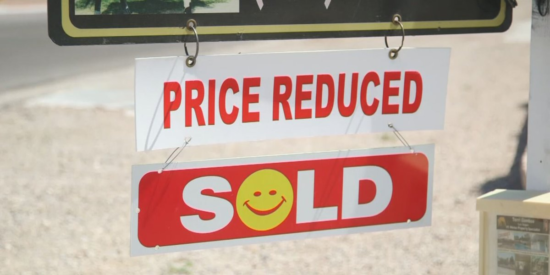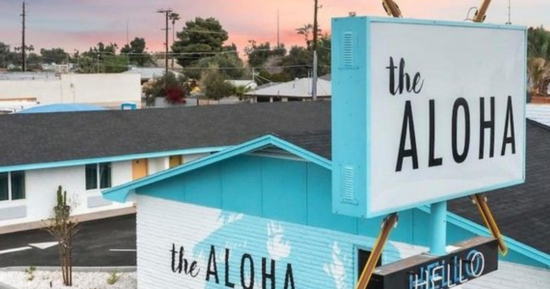search
(Getty)
Study finds fewer than 1 percent of developers are Black or Hispanic
Fewer than 1 percent of private real estate development firms in the U.S. are Black- or Hispanic-owned. And the number of high-grossing Black and Hispanic private developers in the U.S. can be counted on two hands.
That is according to a new study by the Siegel Family Endowment, Grove Impact and the Initiative for a Competitive Inner City.
While the data are limited to publicly identified companies with 51 percent or more Black or Latino ownership, the study offers a snapshot of what it calls a “representation crisis” in the real estate industry.
It found that if all constraints on these companies, including racial discrimination and lack of access to capital, were removed, an additional 23,000 Black-owned development firms and another 31,000 companies owned by Hispanic individuals would exist. That also assumes the number of companies was commensurate with national demographics.
These are, of course, big ifs. But the hypothetical shows the gap in representation in the industry.
D’Wayne Prieto, managing principal of Dobbs Ferry-based Ward Capital Management, noted that development is an “exclusive club” consisting of members who not only have the capital to compete, but who also have long-standing relationships and are able to predict the next wave of popular building uses and development types.
“Not having a long history of ownership in the U.S., it is very difficult for people of color to build at a large-scale,” he said.
He said his company has carved out expertise in repositioning hotel properties to incorporate entertainment and e-gaming facilities.
“I always wanted to own and develop,” he said, noting that Latinos are not proportionately represented among building owners. “We are providing the incomes for these buildings, but we don’t own them.”
The report’s authors said they were inspired to quantify the lack of diversity in real estate development following the murder of George Floyd, given that data on representation in different sectors of the industry are difficult to come by.
Many real estate companies pledged to fight inequality in the industry after Floyd’s death, but on the development side, they seem to have fallen short.
“The institutional efforts catalyzed by the murder of George Floyd largely missed opportunities for equity in the real estate sector to invest in Black developers,” Grove Impact’s Derwin Sisnett, who is also a developer, said in a statement. “With this report, we now know that institutions need to aim much, much higher.”
The report estimates that real estate development nationally could generate some $100 billion in new revenue if the hypothetical 54,000 development firms existed and had revenues like the industry at large.
The report found only six Black developers with annual revenue between $17 million and $50 million and only one Hispanic developer in this range. When it looked at firms grossing more than $50 million, it found no Black developers and a single Hispanic one.
“The market today is inefficient. Institutional capital and large-scale family office capital is missing the opportunity to tap real estate developers,” Grove Impact’s J.B. Schramm said. “We’re not trying to shine a light on injustices. We’re trying to shine a light on missed opportunities.”

Two years after George Floyd’s death, is real estate honoring its pledges?
Study finds fewer than 1 percent of developers are Black or Hispanic
(Getty)
Save article
FONT SIZE
Fewer than 1 percent of private real estate development firms in the U.S. are Black- or Hispanic-owned. And the number of high-grossing Black and Hispanic private developers in the U.S. can be counted on two hands.
That is according to a new study by the Siegel Family Endowment, Grove Impact and the Initiative for a Competitive Inner City.
While the data are limited to publicly identified companies with 51 percent or more Black or Latino ownership, the study offers a snapshot of what it calls a “representation crisis” in the real estate industry.
It found that if all constraints on these companies, including racial discrimination and lack of access to capital, were removed, an additional 23,000 Black-owned development firms and another 31,000 companies owned by Hispanic individuals would exist. That also assumes the number of companies was commensurate with national demographics.
These are, of course, big ifs. But the hypothetical shows the gap in representation in the industry.
D’Wayne Prieto, managing principal of Dobbs Ferry-based Ward Capital Management, noted that development is an “exclusive club” consisting of members who not only have the capital to compete, but who also have long-standing relationships and are able to predict the next wave of popular building uses and development types.
“Not having a long history of ownership in the U.S., it is very difficult for people of color to build at a large-scale,” he said.
He said his company has carved out expertise in repositioning hotel properties to incorporate entertainment and e-gaming facilities.
“I always wanted to own and develop,” he said, noting that Latinos are not proportionately represented among building owners. “We are providing the incomes for these buildings, but we don’t own them.”
The report’s authors said they were inspired to quantify the lack of diversity in real estate development following the murder of George Floyd, given that data on representation in different sectors of the industry are difficult to come by.
Many real estate companies pledged to fight inequality in the industry after Floyd’s death, but on the development side, they seem to have fallen short.
“The institutional efforts catalyzed by the murder of George Floyd largely missed opportunities for equity in the real estate sector to invest in Black developers,” Grove Impact’s Derwin Sisnett, who is also a developer, said in a statement. “With this report, we now know that institutions need to aim much, much higher.”
The report estimates that real estate development nationally could generate some $100 billion in new revenue if the hypothetical 54,000 development firms existed and had revenues like the industry at large.
The report found only six Black developers with annual revenue between $17 million and $50 million and only one Hispanic developer in this range. When it looked at firms grossing more than $50 million, it found no Black developers and a single Hispanic one.
“The market today is inefficient. Institutional capital and large-scale family office capital is missing the opportunity to tap real estate developers,” Grove Impact’s J.B. Schramm said. “We’re not trying to shine a light on injustices. We’re trying to shine a light on missed opportunities.”

Two years after George Floyd’s death, is real estate honoring its pledges?
All rights reserved © 2023 The Real Deal is a registered Trademark of Korangy Publishing Inc.

